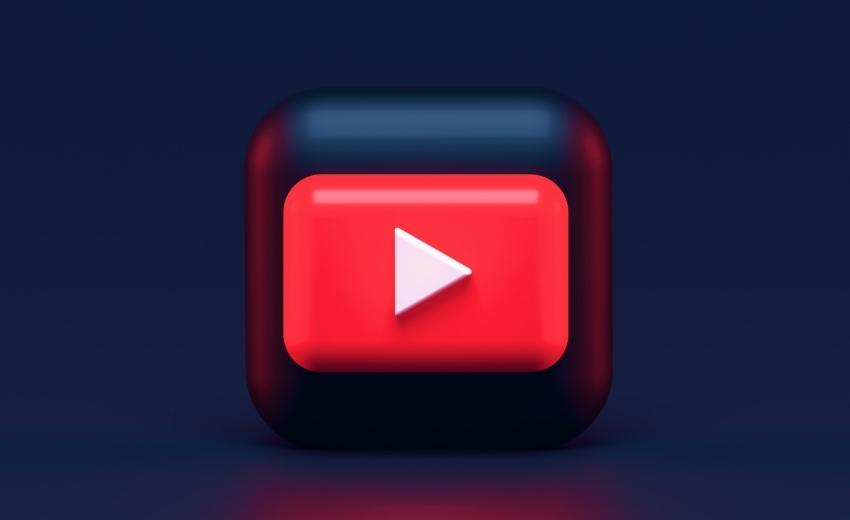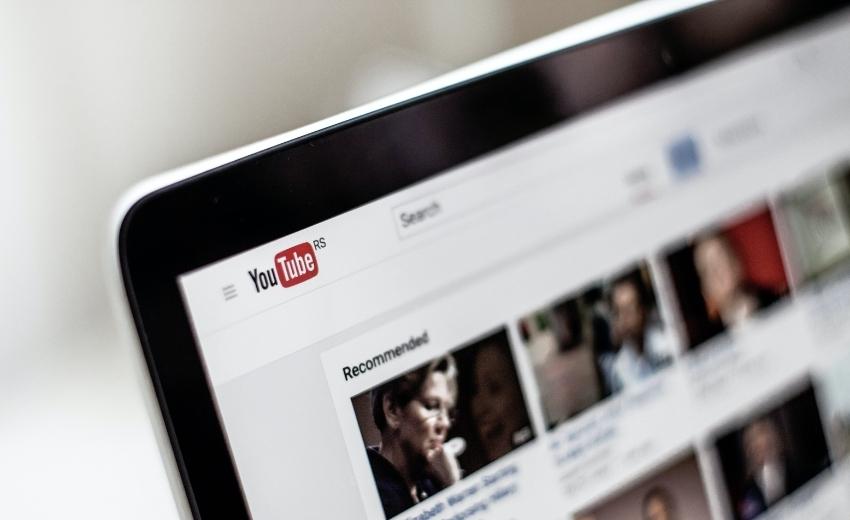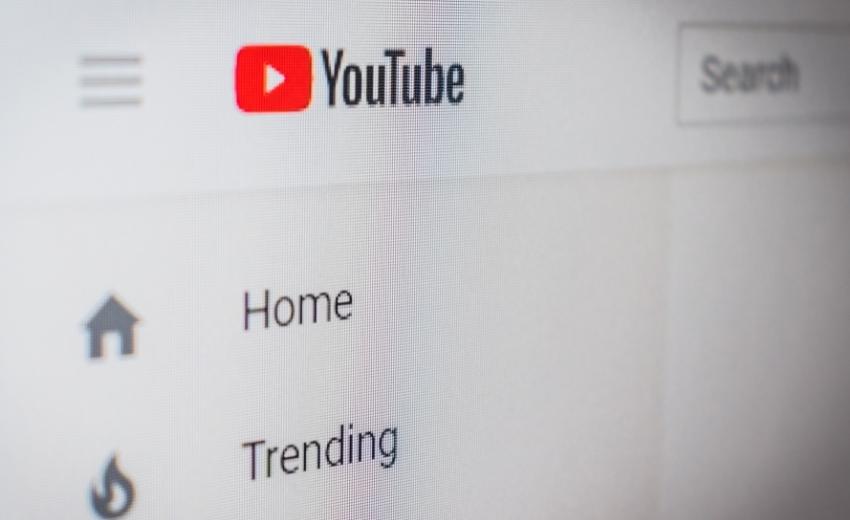YouTube is the second most visited platform (right after Google) with over 2 billion logged-in users a month. We know by now that people prefer videos over text, but what gains a channel a high number of subscribers? Firstly, original and great content that stands out. But this is not enough. Optimising your channel and videos, and carrying out YouTube SEO practices can skyrocket your YouTube channel and career.

Every day, people watch over a billion hours of video on YouTube, so you need something that helps you cut through the incredibly loud noise and gain longer watch times, more subscribers, engagement and traffic.
SEO is short for Search Engine Optimisation, and believe it or not, YouTube is also a search engine. SEO is a set of techniques and practices designed to improve the positioning and visibility of web pages – in this case, your channel and content – in organic search results.
In order to implement actionable advanced YouTube SEO techniques, you should start by understanding the official YouTube ranking factors which characterise all of the existing YouTube SEO practices. These factors are relevance, engagement and quality.
We collected and listed 26 advanced YouTube SEO practices that you can use to help grow your channel and gain followers.
If you don't have the time to read all of our top tips, why not check out five of the best by watching our video.
Keyword research is the base of SEO. Creating a focus keyword for each video and researching topics that are trending will boost your visibility massively. To find the main keyword for your video, sometimes it’s much easier to pick one before you even start recording. Making sure you know what people are searching for or talking about is key. A quick keyword research will show you the most searched terms which you should be using – taking the search volume into consideration as well.
Google Trends is a good place to start in terms of keywords where you can filter your search options for YouTube. AnswerThePublic is another great tool, but if you don’t fancy giving these platforms a go, you can always just type keywords into the YouTube search bar and see what comes up as autosuggestions. This is a good indicator of which direction you should be headed.
If you already have some content from the past, you can also see what worked for you before. In YouTube Studio, you can find keywords that brought traffic to your videos by clicking on the Reach tab. Once you have decided on your main keyword, try to target a few additional ones as well.

Include your main keyword in the video title. Your title needs to encourage users to click on your video, so make sure it is eye-catching and unique. It doesn’t matter what your video offers, but it has to offer something valuable to the user such as entertainment or education. The ideal title length is around 70 characters – this is so your title won’t cut off in the search results or sidebar. Mention the main keyword in your title as close to the beginning of the title as possible, as this has a better SEO value.
It’s also important to put focus keywords into your video description, preferably at the beginning as it holds more SEO value, as mentioned above. Although only 125 characters are displayed at first glance, it is recommended that you write a long description so YouTube will have a better understanding of what your content is really about. Use those available 5,000 characters wisely. It’s also important to keep in mind that your audience will be the one reading your description, so it needs to be unique, compelling and optimised for them. It’s worth including your website URL (if you have one) or other social links, such as your Instagram or Facebook account with a CTA (call-to-action). This can drive additional traffic to your social channels if you use a CTA such as 'follow me on Instagram for content updates!'.
We also recommend including your transcript in the description, or a shorter version of it if it’s too long. Search engines crawl this content to find out what your videos are about and to see if it’s optimised. Having a description with plenty of references to your main keyword, and any additional ones, contributes to a good YouTube SEO, as the keyword density will be high. This means your video is more likely to show up near the top of a user's search results.
YouTube can detect the words you say in your videos with Cloud Video Intelligence API. You should also mention your most important keywords verbally in the video to improve visibility. If you can include your keywords in the first 15 seconds, then that's even better.
As mentioned above, relevant keywords play a vital role in SEO, therefore it’s no surprise that they have an impact when included in the filenames of your video before you upload them, and also your thumbnails.

In order to persuade people to click on your YouTube video, you must have a unique thumbnail that will grab their attention and encourage them to click on the video. Some tips for a successful thumbnail are to have the creator on the picture looking straight at the audience, and bold text to draw attention. These techniques will increase click-through rates (CTRs) and improve rankings. Custom made thumbnails are the best, and don’t forget your keywords!
Yes, you’ve read that right. By adding your competitors’ names into your video tags, you can gain extra visibility because your YouTube videos will likely show up in the ‘suggested’ videos next to your competitor’s video. But make sure you choose a video that is highly relevant to yours and ranks well.
The tags you include can only be seen by YouTube, not your audience. Place your keywords and keyword variations in the tag section for more exposure. With the vidIQ Vision for YouTube extension, you are able to see what tags your competitors are using. When using the same tags as them, you will likely show up in the ‘Up Next’ section when someone is watching their videos. Include 4-5 tags, not more, as too many tags could confuse YouTube and the seach engine won't be able to see what your video is really about. Try to add your tags from the ‘most relevant’ to the ‘least relevant’, but you should keep the tags as similar as possible.
Hashtags exist so users can find content, and this is no different with YouTube. Using related hashtags in video descriptions will help people find your YouTube content if they search for that hashtag. They make trends more visible, and once you add the hashtags they will be shown above the video title and become hyperlinked. Although, if you add hashtags in the video title, hashtags from the description won’t get displayed above, so make sure you use hashtags wisely.
Commenting under the videos of your competitors can bring many benefits to your channel. If you add value to your comments or create conversation, you can grow your community by getting people to notice you, reply to you, or even subscribe to your channel via your competitors' videos. These people may otherwise never come across you, so this is a great way to build awareness around your channel.
Cards pop up when you watch a video, and end screens show up in the final 20 seconds. These should be linked to relevant content, or audible CTAs should be used to encourage people to engage. You can also add teaser text to boost CTR. When done correctly, cards and end screens literally tell your viewers where they have to click to find the relevant video that they are after next. Because YouTube wants users to watch as many videos as they can in one session, end screens are very helpful both for you and for the platform. Check which of your videos have high levels of engagement (likes, views, comments, shares etc.), and connect them through these practices, or create similar videos.
Your end screen template should be on brand and should make the most out of all 4 available modules. You can use end screens for different things, such as linking them to other videos or playlists, but make sure you keep it relevant.
Cards are interactive pop-ups that occur while your videos are playing, great for promoting playlists, other videos, websites, etc. This is to direct your audience towards more content. You can add a maximum of 5 cards on a video and there are 6 different types: channels, donation cards to encourage fundraising, fan funding, link cards to external platforms, polling cards, and video or playlist cards.
Setting the video location gives you some benefits if you have a Google Business Profile (formerly known as Google My Business), and it is especially good for local businesses. By setting a location, your video has a higher chance of showing up on Google result pages when people search for relevant things in your local area, or when people search from an IP address that matches the location you selected.
Going live on YouTube and using the chat function during your video allows you to engage with your audience. Moreover, your live views will combine with standard video watches later on, giving your engagement ratings a boost. YouTube favours accounts that go live, and you can also stand out from other creators by doing this.
If your account has over 1,000 subscribers, you can post in the community tab and get shown to like-minded people who won’t have heard of you before. Unfortunately, accounts under 1,000 subscribers currently only have the discussion tab available.
Timestamps can also boost SEO. These allow your audience to jump to different parts of your video without them searching for a section forever. Keywords should be included here as well if possible.
An engaging script can help you cut out unwanted parts from your video, such as stalling, and can grab your audience’s attention more. Your script should have a compelling intro, get to the point of the video quickly, and should tell the audience why they shouldn’t click away.
YouTube takes into consideration your total view duration. The longer time someone watches your videos, the better you will rank. Longer videos will more likely increase your total view duration as they can be watched longer, plus more ads can be shown.

As mentioned above, watch time is a key factor in YouTube SEO. If people don’t stay and keep clicking away from your videos very early, that’s sending a negative message to YouTube that your video is not liked by your viewers. In order for your videos to do well, it must be engaging, unique and interesting. It’s also a good idea to take a step back and review your previous videos to see how they did in terms of watch time. It might be that your audience is more interested in a particular video type.
Engagement on your YouTube videos affects YouTube SEO. When people comment, like, share or subscribe, your videos will rank higher. So, tell them to! Ask your viewers to subscribe, comment, like and share. Ask them questions which they can answer in the comments so your videos will get better engagement rates, and additionally you will find out what people think about your videos.
Playlists are one of the best ways to increase watch time on your channel, as videos play automatically. Instead of someone just watching one of your videos, they might watch multiple. Group your videos together that cover similar topics or areas.
Your channel should have several playlists to organise your content so viewers can find the videos they want more easily, which increases user satisfaction and experience. Playlists can even have their own branding, and users can also share the whole playlist rather than just one video.
More backlinks mean more valuable content; YouTube works the same way Google does. To increase backlinks, you have to link your video to websites that are relevant and of good quality. This also increases your rankings on Google, so it's a win-win!
Another way to rank higher on YouTube in 2022, and to increase watch time, is to share your video on social media platforms encouraging people to watch, share and engage. You can also post your videos on forums where the conversation is related to your content. Searching for your main keyword will show you those valuable threads.
YouTube videos support closed captions to help those with hearing difficulties. Your closed captions can also get crawled by YouTube and Google, increasing your SEO value. In order to get your closed captions indexed and make them SEO friendly, edit the automated captions that YouTube gives you, as these are usually not 100% accurate.
The first 48 hours after you publish your video is a critical period in terms of YouTube SEO. Everything should be prepared and well-thought-out in advance to avoid mistakes and editing in the video title, description, tags, file names, etc.
Another way to increase subscribers is by adding watermarks, which are buttons that are only visible to those who are not subscribed to your channel yet. This can be a logo, URL or even an image. A great call-to-action!
Searching for videos with the advanced search option on YouTube gives people a chance to tick the categories they are looking for. Giving a category to your video will increase your chances of being shown when someone searches for that category. You can select a category when uploading a video.
We know these 26 SEO practices might sound a bit overwhelming to you, especially if you are just starting out. Go through this list again, and try to implement at least 3 practices at first and improve your SEO game bit by bit. Adding these YouTube SEO techniques won't increase the success of your channel overnight - it is a slow and gradual improvement - so there really is no harm in taking your time to implement these practices properly rather than rushing to do them all at once.
Our experienced and specialist team at Freebook Global Technologies is ready to take on any challenges your business faces in the digital marketing world, including video production and YouTube SEO. Check out the variety of services we offer and get in touch today if you think we are the solution to your problem.
Why not check out our YouTube channel too?